| First Beel cabinet | |
|---|---|
Cabinet of the Netherlands | |
  First meeting of the cabinet at the Ministry of General Affairs on 3 July 1946 First meeting of the cabinet at the Ministry of General Affairs on 3 July 1946 | |
| Date formed | 3 July 1946 (1946-07-03) |
| Date dissolved | 7 August 1948 (1948-08-07) 2 years, 35 days in office (Demissionary from 7 July 1948 (1948-07-07)) |
| People and organisations | |
| Monarch | Queen Wilhelmina |
| Prime Minister | Louis Beel |
| Deputy Prime Minister | Willem Drees |
| No. of ministers | 17 |
| Ministers removed | 5 |
| Total no. of members | 19 |
| Member party | Catholic People's Party (KVP) Labour Party (PvdA) |
| Status in legislature | Centrist Majority government (Grand coalition/Roman-Red) |
| History | |
| Election | 1946 election |
| Outgoing election | 1948 election |
| Legislature terms | 1946–1948 |
| Incoming formation | 1946 formation |
| Outgoing formation | 1948 formation |
| Predecessor | Schermerhorn–Drees cabinet |
| Successor | Drees–Van Schaik cabinet |
| Part of the Politics series |
| Politics of the Netherlands |
|---|
 |
| Constitution |
| Monarchy |
| Cabinet |
| States General |
| Judiciary |
| Elections |
| Local government |
| Foreign relations |
| Related topics |
|
|
The First Beel cabinet was the executive branch of the Dutch Government from 3 July 1946 until 7 August 1948. The cabinet was formed by the christian-democratic Catholic People's Party (KVP) and the social-democratic Labour Party (PvdA) after the election of 1946. The cabinet was a centre-left grand coalition and had a substantial majority in the House of Representatives with prominent Catholic politician Louis Beel serving as Prime Minister and dual served as Minister of the Interior continuing from the previous cabinet. Labour Leader Willem Drees continued as Deputy Prime Minister and Minister of Social Affairs from the previous cabinet. According to one study, “Beel was of the opinion that a joint KVP-PvdA program should be presented to other political groups. According to Beel, that program should be socio-economically progressive, that is to say reform-oriented in favor of broad layers of the population. The socialists should not have to fear that a conservative wing within the KVP would rule the roost.”
The cabinet served during early years of the post-war 1940s. Domestically the beginning of the recovery and rebuilding following World War II continued with the Marshall Plan, it was also to implement several major social reforms to social security. Internationally the beginning of the decolonization of the Dutch East Indies was continued. The cabinet suffered no major internal and external conflicts. Following a major revision of the constitution a snap election was called to simultaneously elect a new parliament. Following the election the cabinet continued in a demissionary capacity until it was replaced with the Drees–Van Schaik cabinet.
Term
A major issue was the independence of the Dutch East Indies. This required a change in the constitution. In November 1946 the Linggadjati Agreement was signed, but different interpretations led to Dutch military intervention (politionele acties). Under international pressure through the UN, this ended and negotiations restarted, ultimately resulting in the new country Indonesia, but only under the next cabinet, Drees I. An important new law was the 'Noodwet Ouderdomsvoorziening' by Deputy Prime Minister and Minister of Social Affairs Willem Drees.
Cabinet Members
| Ministers | Title/Ministry/Portfolio(s) | Term of office | Party | ||||
|---|---|---|---|---|---|---|---|
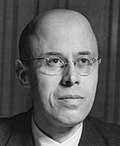
|
Dr. Louis Beel (1902–1977) |
Prime Minister | 3 July 1946 – 7 August 1948 |
Catholic People's Party | |||
| General Affairs | 11 October 1947 – 7 August 1948 | ||||||
| Minister | Interior | 23 February 1945 – 15 September 1947 | |||||

|
Willem Drees (1886–1988) |
Deputy Prime Minister |
Social Affairs | 25 June 1945 – 7 August 1948 |
Labour Party | ||
| Minister | |||||||

|
Dr. Piet Witteman (1892–1972) |
Minister | Interior | 15 September 1947 – 7 August 1948 |
Catholic People's Party | ||
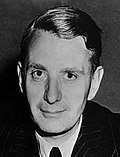
|
Baron Pim van Boetzelaer van Oosterhout (1892–1986) |
Minister | Foreign Affairs | 3 July 1946 – 7 August 1948 |
Independent Conservative Liberal | ||

|
Dr. Piet Lieftinck (1902–1989) |
Minister | Finance | 25 June 1945 – 1 July 1952 |
Labour Party | ||

|
Johan van Maarseveen (1894–1951) |
Minister | Justice | 3 July 1946 – 7 August 1948 |
Catholic People's Party | ||

|
Dr. Gerardus Huysmans (1902–1948) |
Minister | Economic Affairs | 3 July 1946 – 14 January 1948 |
Catholic People's Party | ||
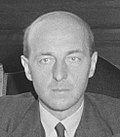
|
Sicco Mansholt (1908–1995) |
14 January 1948 – 20 January 1948 |
Labour Party | ||||
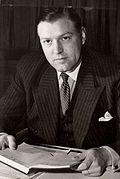
|
Dr. Jan van den Brink (1915–2006) |
20 January 1948 – 2 September 1952 |
Catholic People's Party | ||||

|
Lieutenant colonel Alexander Fiévez (1902–1949) |
Minister | War | 3 July 1946 – 7 August 1948 |
Catholic People's Party | ||
| Navy | 3 July 1946 – 7 August 1946 | ||||||
| 25 November 1947 – 7 August 1948 | |||||||
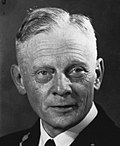
|
Rear admiral Jules Schagen van Leeuwen (1896–1976) |
7 August 1946 – 25 November 1947 |
Independent Social Conservative | ||||

|
Dr. Jos Gielen (1898–1981) |
Minister | Education, Arts and Sciences |
3 July 1946 – 7 August 1948 |
Catholic People's Party | ||

|
Hein Vos (1903–1972) |
Minister | Transport | 3 July 1946 – 1 March 1947 |
Labour Party | ||
| Transport and Water Management |
1 March 1947 – 7 August 1948 | ||||||

|
Sicco Mansholt (1908–1995) |
Minister | Agriculture, Fisheries and Food Supplies |
25 June 1945 – 1 January 1958 |
Labour Party | ||
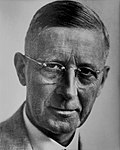
|
Dr. Johan Ringers (1885–1965) |
Minister | Public Works and Reconstruction |
25 June 1945 – 15 November 1946 |
Independent Classical Liberal | ||

|
Hein Vos (1900–1972) |
15 November 1946 – 3 March 1947 |
Labour Party | ||||
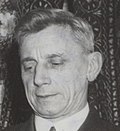
|
Lambertus Neher (1899–1967) |
Reconstruction and Housing |
3 March 1947 – 1 March 1948 |
Labour Party | |||

|
Dr. Joris in 't Veld (1895–1981) |
1 March 1948 – 2 September 1952 |
Labour Party | ||||

|
Jan Jonkman (1891–1976) |
Minister | Colonial Affairs | 3 July 1946 – 30 August 1947 |
Labour Party | ||

|
Dr. Louis Beel (1902–1977) |
30 August 1947 – 3 November 1947 |
Catholic People's Party | ||||

|
Jan Jonkman (1891–1976) |
3 November 1947 – 30 August 1947 |
Labour Party | ||||
| Ministers without portfolio | Title/Ministry/Portfolio(s) | Term of office | Party | ||||
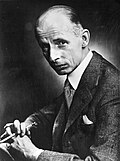
|
Eelco van Kleffens (1894–1983) |
Minister | Foreign Affairs | • United Nations | 1 March 1946 – 1 July 1947 |
Independent Classical Liberal | |

|
Lubbertus Götzen (1894–1979) |
Minister | Colonial Affairs | • Colonial Fiscal Policy |
11 November 1947 – 15 March 1951 |
Independent Christian Democratic Protestant | |
See also
References
- Changing Liaisons The Dynamics of Social Partnership in 20th Century West-European DemocraciesBy Karel Davids, 2007, P.165
- III. De kabinetsformatie van 1946 a. De formatie tot 17 juni 1946
- "Coalities tussen sociaaldemocraten en confessionelen" (in Dutch). Historisch Nieuwsblad. 10 August 2006. Retrieved 24 April 2018.
- F.J.F.M. Duynstee; J. Bosmans (1977). Parlementaire geschiedenis van Nederland na 1945 , deel 1, Het kabinet-Schermerhorn-Drees (1945-1946). Van Gorcum. p. 5. ISBN 90-232-1412-9.
External links
- Official
- (in Dutch) Kabinet-Beel I Parlement & Politiek
- (in Dutch) Kabinet-Beel I Rijksoverheid